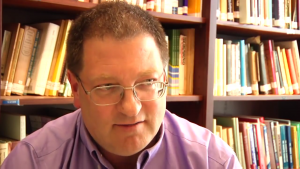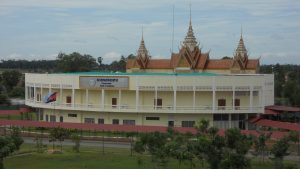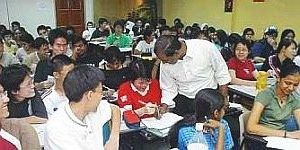How Finnish, not East Asian Education Became a Global Reference
Memo #132 – Finnish education has become the global symbol of educational excellence since its success in the Organization for Economic Development and Cooperation’s (OECD) Programme for International Student Assessment (PISA) implemented triennially since 2000. Every year, a few thousand international visitors, including many from East Asian nations, flock to the small Nordic nation to discover “how Finland gets it right.”
「フィンランド教育ブーム」再考
Memo #132 – 2000年以来、3年毎に実施されているOECDの国際的な学習到達度調査(以下PISA)において好成績を収めたフィンランドは、優れた教育改革のモデルとして世界中の教育関係者の注目を集めている。毎年数千人もの海外教育関係者がこの北欧の小国を訪れており、東アジアからも多くの人々がそのPISA成功の「秘訣」を探りに、「フィンランド詣で」を敢行している。
Beyond Censorship in China’s Media and Cyberspace
Memo #131 – On January 9, 2012, the People’s Daily led with a glowing feature celebrating Chongqing’s attempts to achieve “common prosperity.” 30 years of market-driven reform, “letting some people get rich first,” has created one of the most unequal societies in the world. Chongqing’s innovative strategies have deep implications for China’s future, and an intense debate is currently playing out in Chinese media, old and new.
Government Policy in East Asia’s Digital Economy (Video Interview with Dr. Ken Coates) (Part 2/2)
Memo #130 – Government policies have played a crucial role in the development of the digital economy in East Asia. Japan’s investments in the sector go back to the 1960s and 1970s, with many of the early efforts laying the foundation for the subsequent success of Sony, Panasonic, and Toshiba. Taiwan’s formidable “triple-helix” of government, business, and universities bore fruit in the emergence of the impressive “Taiwan Inside” effort to expand computer manufacturing. Korea’s government invested heavily in digital infrastructure, making the country the most wired in the world. China’s extensive innovation investments in everything from computer hardware to a network of animation studios have produced a great deal of research and commercial activity in the sector.
Cambodia’s Khmer Rouge Tribunal – Victims’ “Right to a Remedy”
Memo #129 – Case 002 of the Extraordinary Chambers in the Courts of Cambodia (ECCC) is underway, more than three decades after the genocide that killed 1.7 million Cambodians. On trial before a hybrid United Nations/Cambodian judiciary are the three alleged most senior remaining leaders of the Khmer Rouge regime. They face charges of crimes against humanity, grave breaches of the Geneva Conventions, genocide, homicide, torture, and religious persecution.
Why China isn’t Buying Eurozone Bailout Bonds (Yet)
Memo #128 – China has still not committed to invest in the European Financial Stability Facility (EFSF), the stopgap fund created to tackle the European sovereign debt crisis. Officials have actually stated that China will not use its $3.2 trillion in foreign exchange reserves to rescue other countries. Why is this so?
为何中国仍未打算购买欧元区救助债券
Memo #128 – 中国仍未就投资于欧洲金融稳定基金(EFSF)做出任何承诺。创立这一基金是为了应急解决欧洲主权债务危机问题。官方发言人已表示,中国不会使用3.2万亿美元的外汇储备拯救其他国家,为什么要这样做呢?
South Korea’s Immigrant Incorporation Strategy
Memo #127 – In July 2002, the mayor of Seoul conferred honourary residency status on Guus Hiddink, a Dutch soccer manager who advanced the Korean soccer team to the World Cup quarter finals. In contrast, in October 2009 the government deported Minu, a migrant worker and activist from Nepal, who had lived in Korea for 18 years and had been active in organizing migrant workers. These two vignettes demonstrate how the Korean government treats immigrants differentially.
한국정부의 이민자 정책
Memo #127 – 2002년 월드컵의 열기가 채가시기 전인 2002년 7월에, 서울시는 당시 대한민국 축구 국가대표팀 감독이었던 거스 히딩크 감독에게 명예 서울 시민증을 수여했다 반면 2009년 10월 한국에 18년 동안 있으면서 이주노동자 운동에 앞장섰던 네팔인 미누씨를 강제추방했다. 이 두 사건은 한국 정부의 차별적 이주자 정책을 단적으로 보여 준다.
Private Tutoring in Malaysia: Regulating for Quality
Memo #126 – Private tutoring is perceived as a household necessity in Malaysia. This growing phenomenon is increasingly difficult for policy makers to ignore. The Malaysian government consistently tries to achieve a balance between encouraging and regulating private tutoring.




